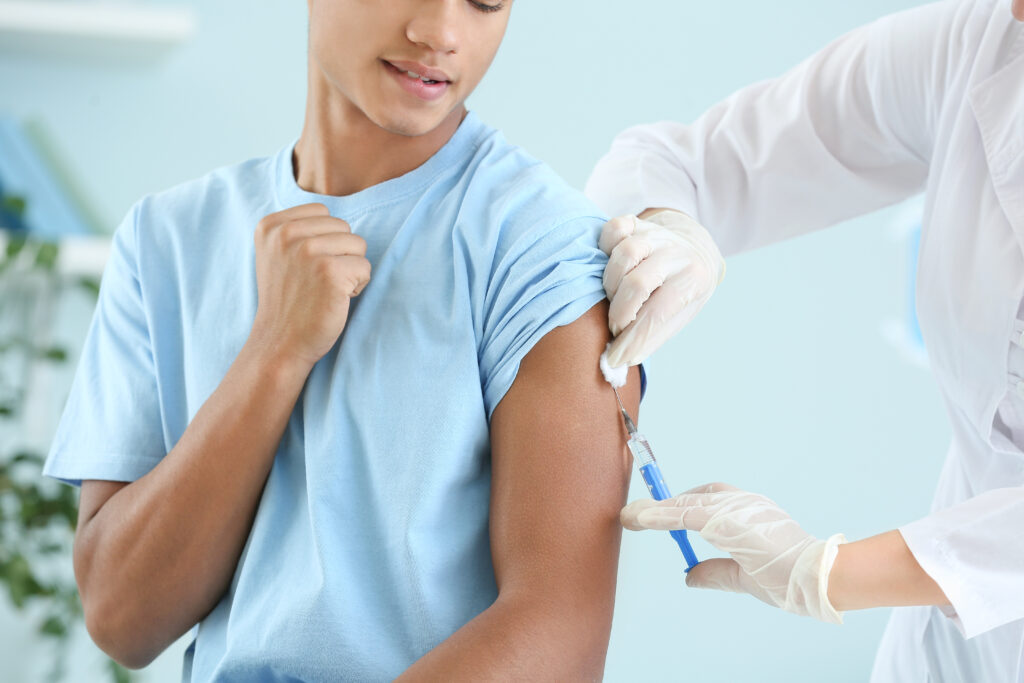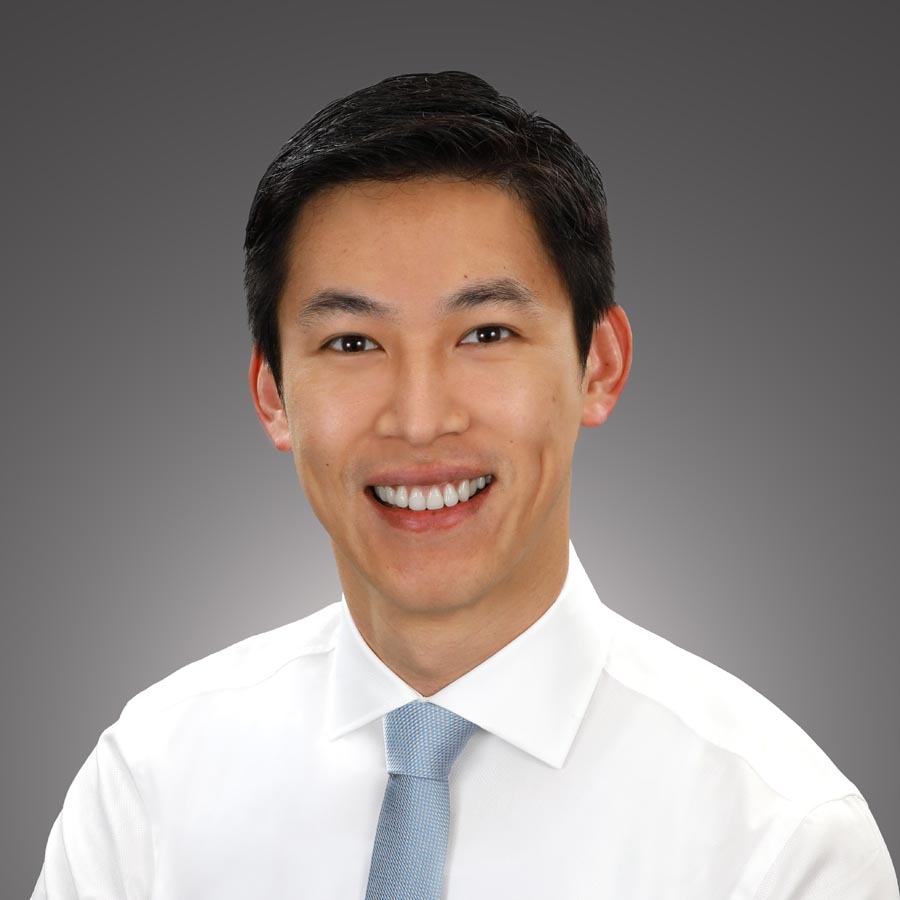Should Children Get the HPV Vaccine to Help Prevent Oropharyngeal Cancer?

Human papillomavirus, or HPV, is the most common sexually transmitted infection in the United States. The CDC estimates that there were approximately 43 million Americans infected with HPV in 2018, many of whom were in their late teens or early twenties. Most people infected with HPV will never develop symptoms. But in some people, HPV infections can cause cancer, including oropharyngeal cancer. Fortunately, there are vaccines that may help prevent this, especially when the vaccines are administered at a relatively young age.
If you’re reading this and wondering what oropharyngeal cancer even is, don’t worry – we’ve got you covered. In this article, we will address the following questions:
- What is human papillomavirus?
- What is oropharyngeal cancer?
- Does HPV cause oropharyngeal cancer?
- Does the HPV vaccine help to prevent oral cancer?
- When should children get the HPV vaccine?
What Is Human Papillomavirus?
Human papillomavirus refers to a large group of viruses, many of which are sexually transmitted. Certain of these viruses – known as “high-risk HPVs” – can cause various types of cancer. Most people are able to fight off a high-risk HPV infection within two years without ever even realizing they were infected. Sometimes, however, high-risk HPV infections persist for many years and eventually lead to cancer.
What Is Oropharyngeal Cancer?
Oropharyngeal cancers are ones that begin in the oropharynx, which is essentially the very back of the mouth and the part of the throat that lies behind the mouth. The oropharynx includes the following:
- The soft palate (the muscular part of the roof of the mouth, located behind the bony hard palate that makes up the front portion of the roof of the mouth),
- The back 1/3 of the tongue,
- The tonsils, and
- The part of the throat that lies behind the mouth.
Does HPV Cause Oropharyngeal Cancer?
It can, yes. As discussed above, most people who are infected with high-risk HPVs will never develop any symptoms or cancer, but some people are unable to clear the virus out of their bodies and may eventually develop oropharyngeal cancer as a result. It typically takes decades for oropharyngeal cancer to develop after being infected with a high-risk HPV, but currently there are no known HPV treatments or ways to prevent HPV-infected people from developing cancer. It is not well understood why some people infected with high-risk HPVs develop oropharyngeal cancer while the majority of people do not.
According to the CDC, an estimated 19,700 Americans are diagnosed with HPV-related oropharyngeal cancer each year. This represents about 70% of cases of oropharyngeal cancer, meaning that HPV is the leading cause of this type of cancer in the United States.
Although the total number of Americans with oropharyngeal cancer is still very small, this type of cancer is on the rise, mostly as a result of HPV infections. In fact, HPV-associated oropharyngeal cancer is now the most common HPV-related cancer in the United States. Researchers are hopeful that vaccinating children and adolescents against HPV will curb this trend in future decades.
Does the HPV Vaccine Help to Prevent Oral Cancer?
There have not yet been any studies to conclusively prove that the HPV vaccine can prevent HPV-related oropharyngeal cancer, but based on studies that have been done, it seems reasonable to conclude the vaccine could help.
The HPV vaccine was originally developed to prevent HPV-related cervical and reproductive cancers. So far, clinical trials have primarily focused on demonstrating that the HPV vaccine can prevent anogenital HPV infections that lead to cervical and anal cancer, not on whether they can prevent oral HPV infections that may lead to oropharyngeal cancer. However, the vaccine has been shown to prevent infection by various types of HPV, including HPV 16, which is a high-risk HPV type that is linked to more than half of oropharyngeal cancer cases in the U.S. A study in 2017 found that oral infections with certain types of HPV, including HPV 16, were 88% lower in young adults who had received at least one dose of an HPV vaccine than in those who had not been vaccinated.
When deciding whether to get the vaccine, it is at least worth considering that, in addition to protecting against other types of cancers, the vaccine could potentially also help prevent oropharyngeal cancer. Your child’s physician can work with you and your child to help you understand all of the vaccine’s risks and benefits.
When Should Children Get the HPV Vaccine?
The CDC recommends that children get vaccinated against HPV at age 11 or 12. If that seems early, consider this: HPV vaccines help prevent people from becoming infected by HPV, but they cannot treat existing HPV infections. According to the National Cancer Institute, nearly all sexually active people will become infected with HPV within a few months to a few years of becoming sexually active, and around half of these infections will involve a type of HPV that can cause cancer. As a result, the vaccines may provide the most benefit to people who receive them before becoming sexually active.
That said, even if your child is already sexually active, the vaccine may still be beneficial. The CDC recommends that adolescents and adults who are 26 and under and who haven’t yet received the HPV vaccine do so. Even if your child has already been infected by one type of HPV, the vaccine could still prevent infection by other types.
According to the CDC, most people who receive the first dose of the HPV vaccine before their fifteenth birthday only need two doses of the vaccine. People who receive the first dose between the ages of 15 and 26 and people who are immunocompromised should instead receive three doses.
Pediatric Dentists in Hurst, TX
There is so much to know about ways to help protect your children’s oral health, and board-certified pediatric dentists can help. At Hurst Pediatric Dentistry, we love sharing our knowledge with patients and parents with the goal of empowering them to make informed decisions about our patients’ oral health. To learn more, schedule an appointment for your child’s dental checkup today by calling us at 817-510-6400.
Hurst Pediatric Dentistry is located in Hurst, Texas. Our dentist, Dr. Jin Lin, is a board-certified pediatric dentists who treats children from Hurst, Euless, Bedford, North Richland Hills, Colleyville, Keller, Southlake, Westlake, Arlington, Fort Worth, Irving and the surrounding area.
This article is intended to provide general information about oral health topics. It should not be used to diagnose or treat any medical condition or as a substitute for the advice of a healthcare professional who is fully aware of and familiar with the specifics of your case. Always seek the advice of your dentist or other qualified healthcare provider with regard to any questions you may have relating to a medical condition or treatment.
MEDICALLY REVIEWED BY:
Dr. Jin Lin

Dr. Jin Lin is a board-certified pediatric dentist with a passion for helping children achieve healthier, more beautiful smiles. He earned his Bachelor of Science degree from Cornell University and his Doctor of Dental Medicine (D.M.D.) degree from the Harvard School of Dental Medicine. After graduating cum laude from dental school, he completed his post-doctoral pediatric dentistry training at Boston Children’s Hospital and the Harvard School of Dental Medicine, where he served as chief resident and worked with children with a wide variety of special medical and dental needs, including children with rare syndromes.

